Normal Governance and Civics Worksheets for Ages 6-9 - Page 2
41 filtered results
-
From - To
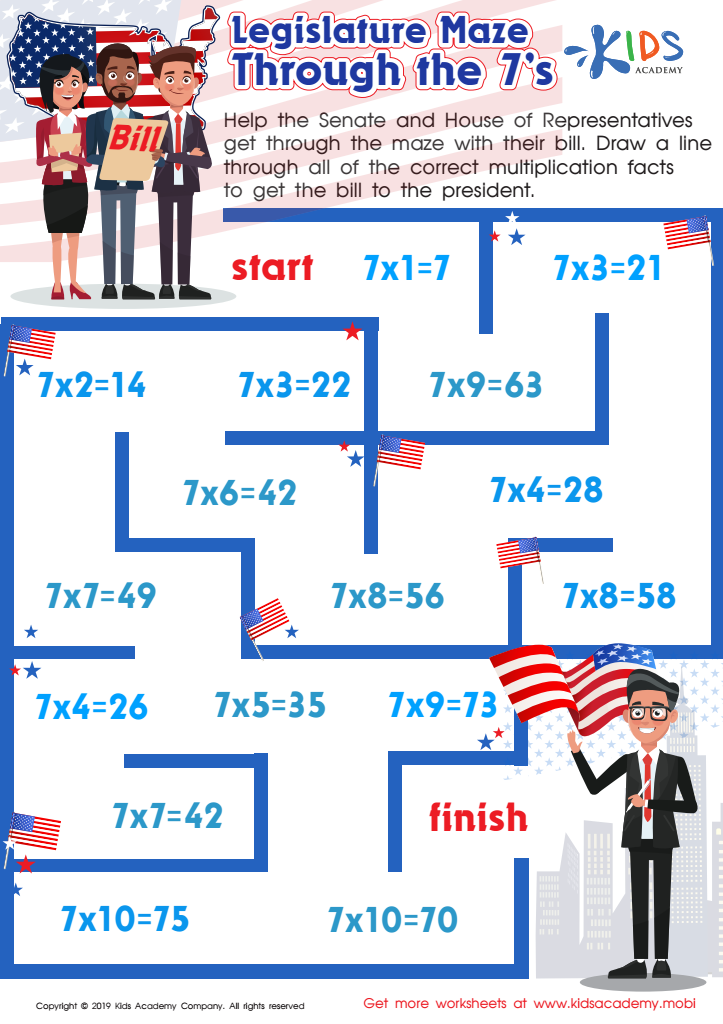

Legislature Maze Through the 7’s Worksheet
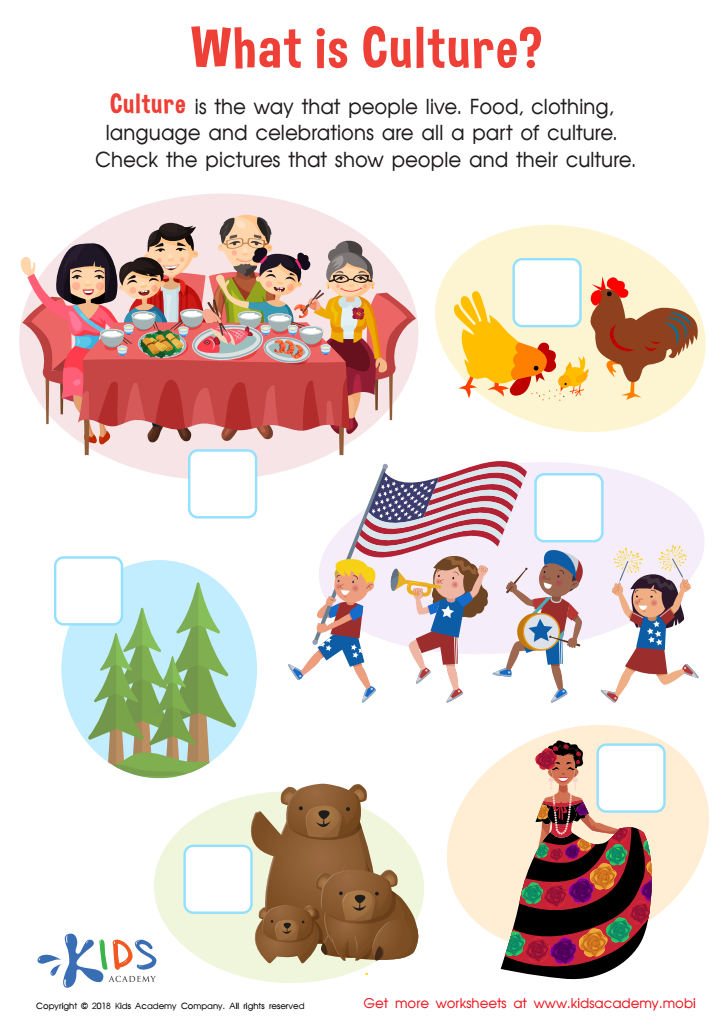

What Is Culture? Worksheet
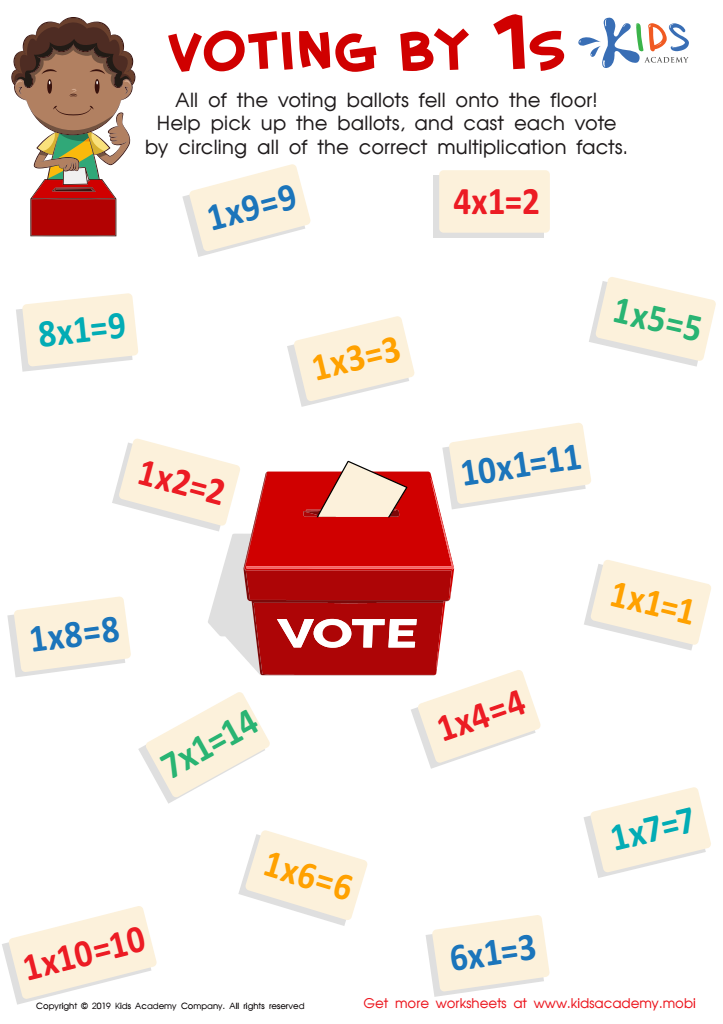

Voting by 1s Worksheet
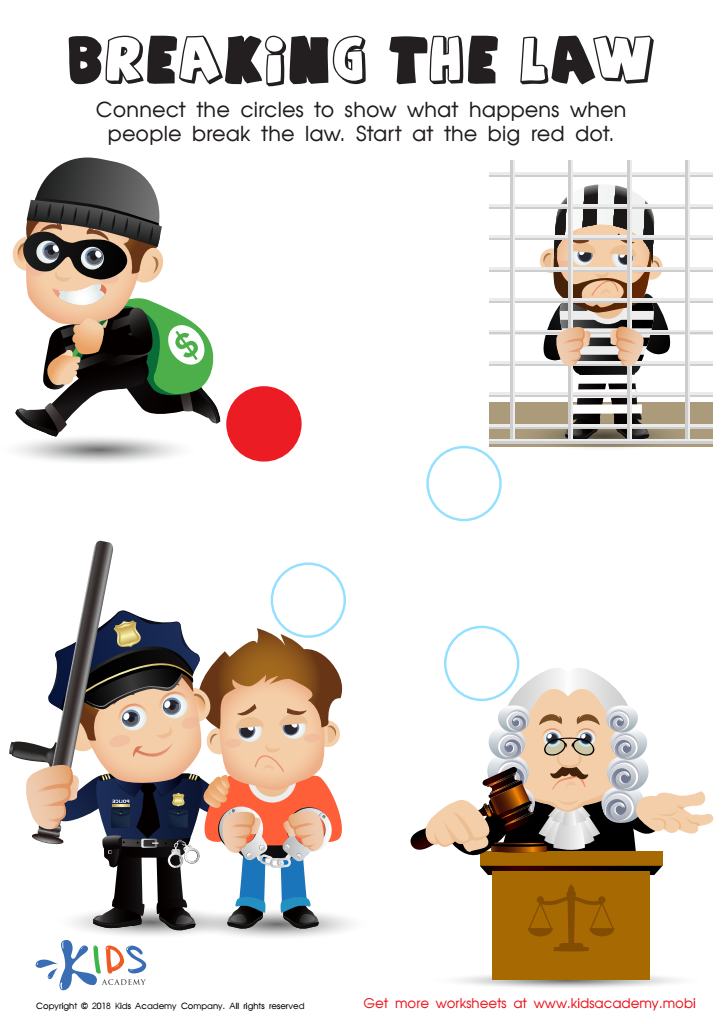

Breaking the Law Worksheet


Election Day Worksheet
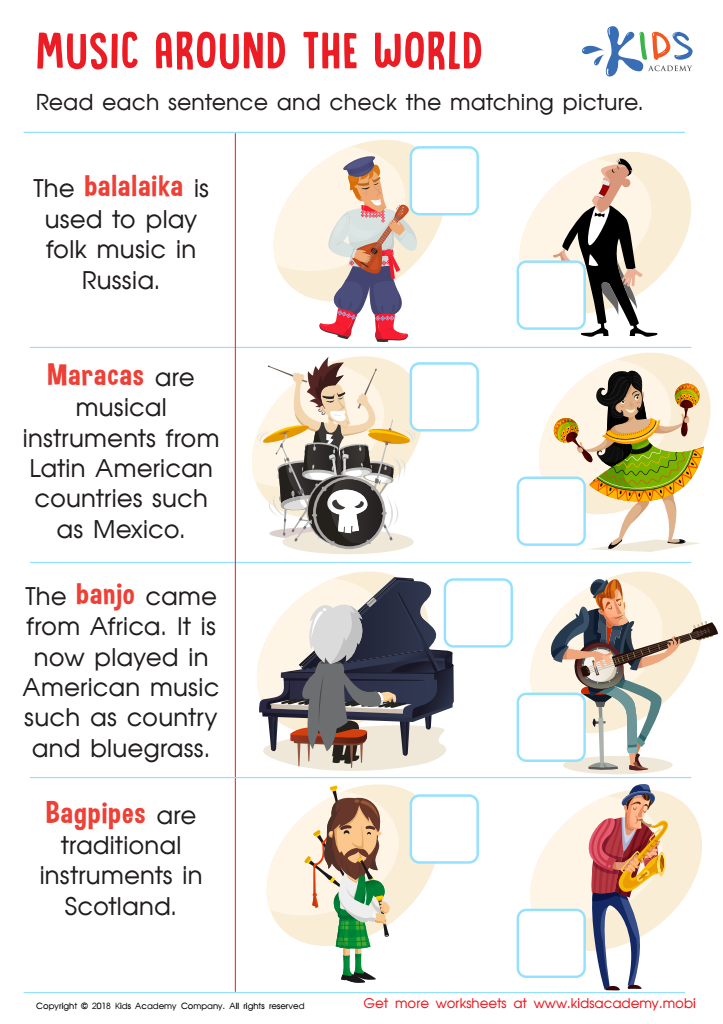

Music Around the World Worksheet


Chinese Word Tracing: Ni Hao Worksheet


Declaration of Independence Word Search Printable
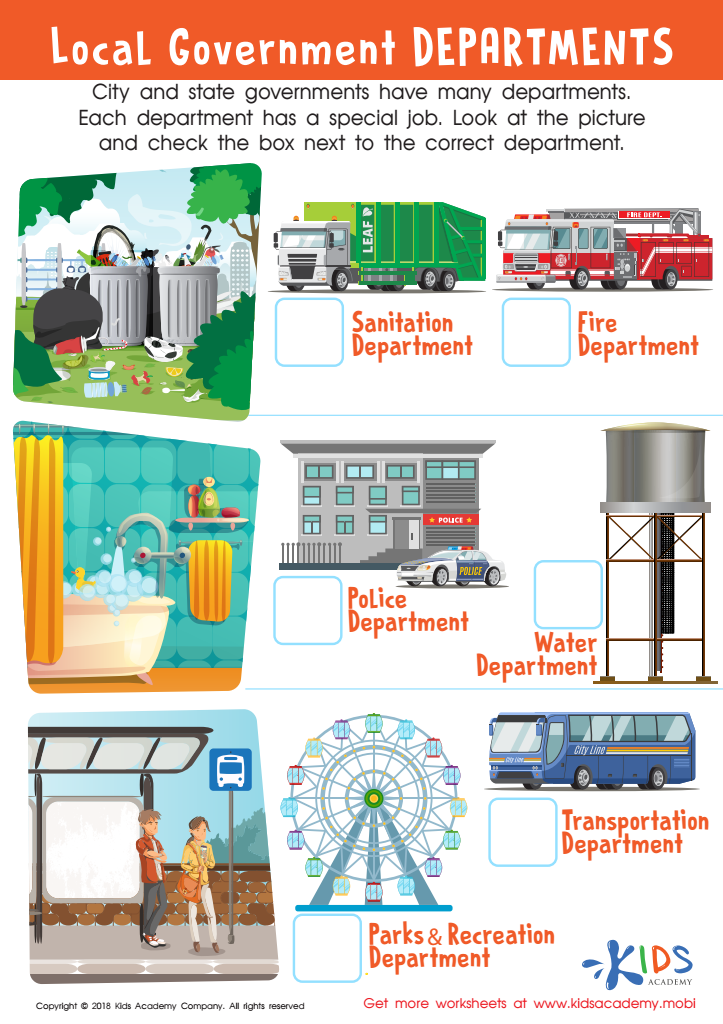

Local Government Departments Worksheet
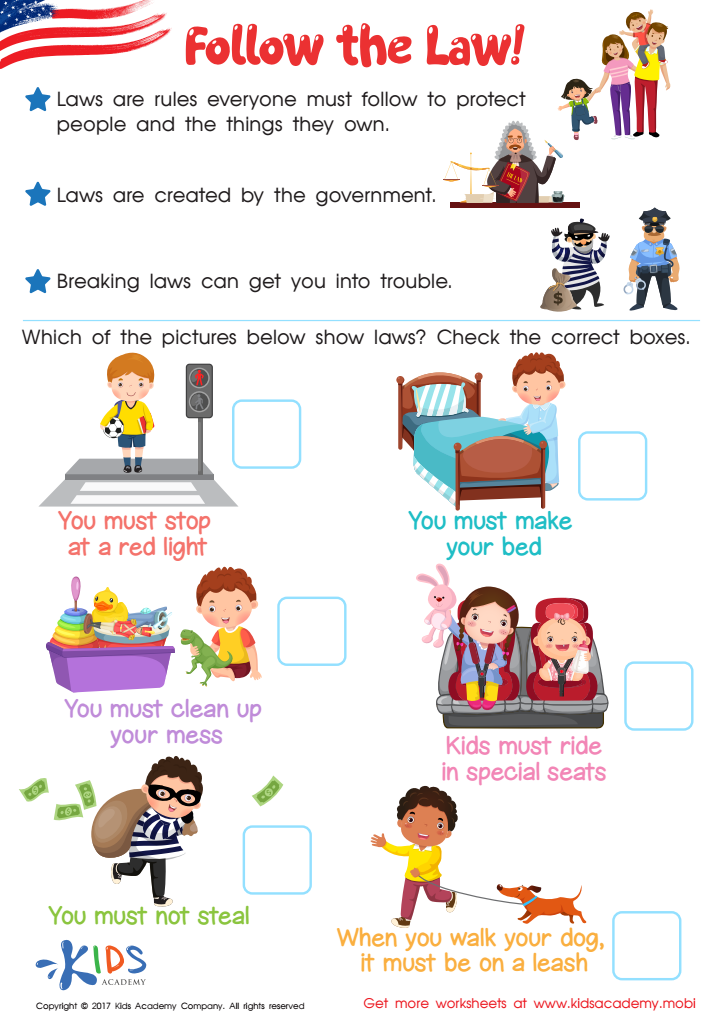

Follow the Law Worksheet
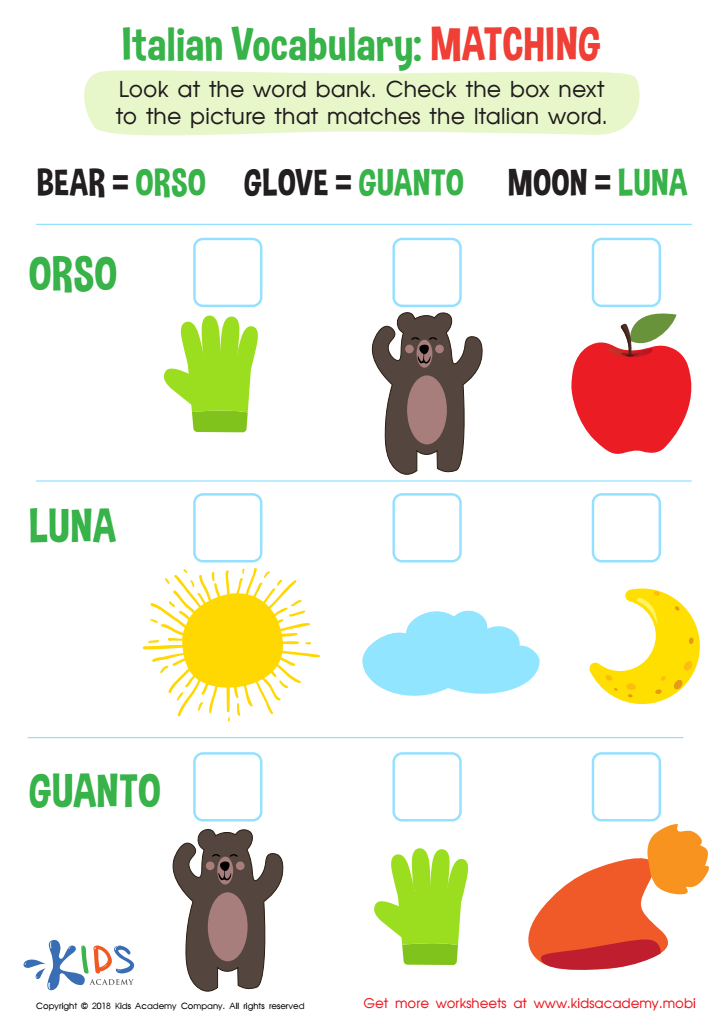

Italian Vocabulary Matching Worksheet
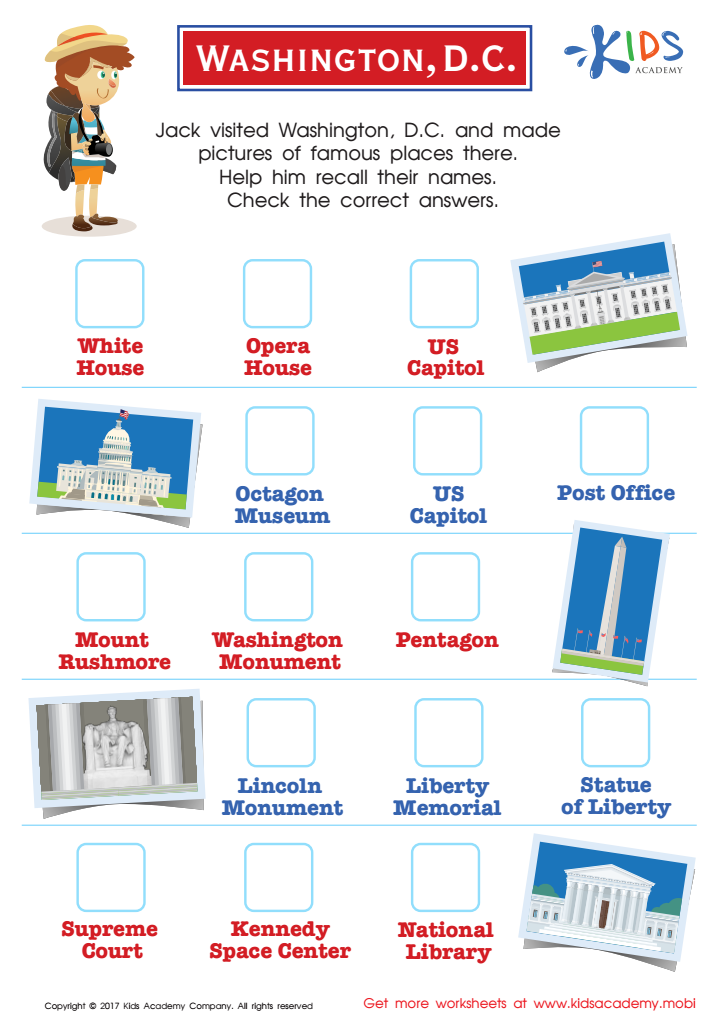

Washington D.C. Printable Worksheet
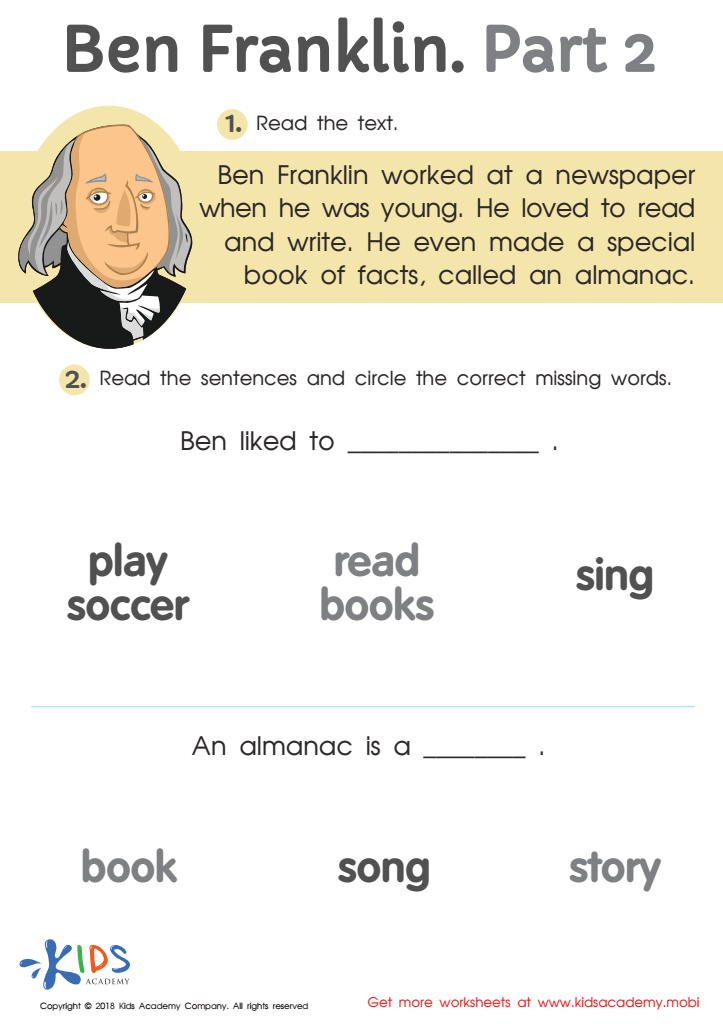

Ben Franklin Part 2 Worksheet
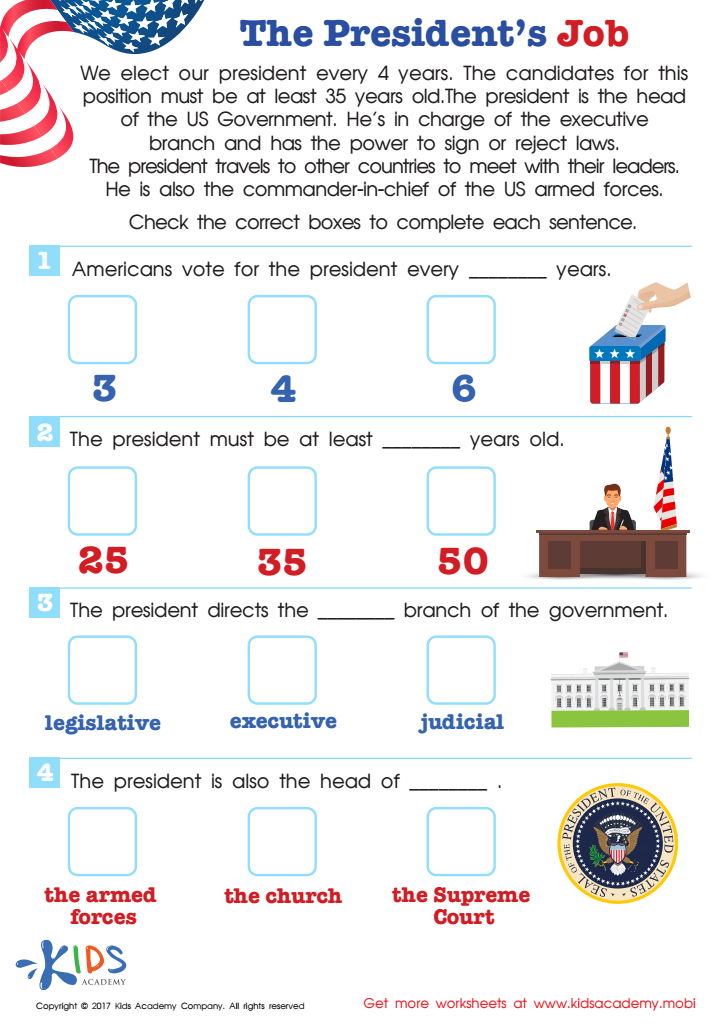

President of the USA Job Description Worksheet
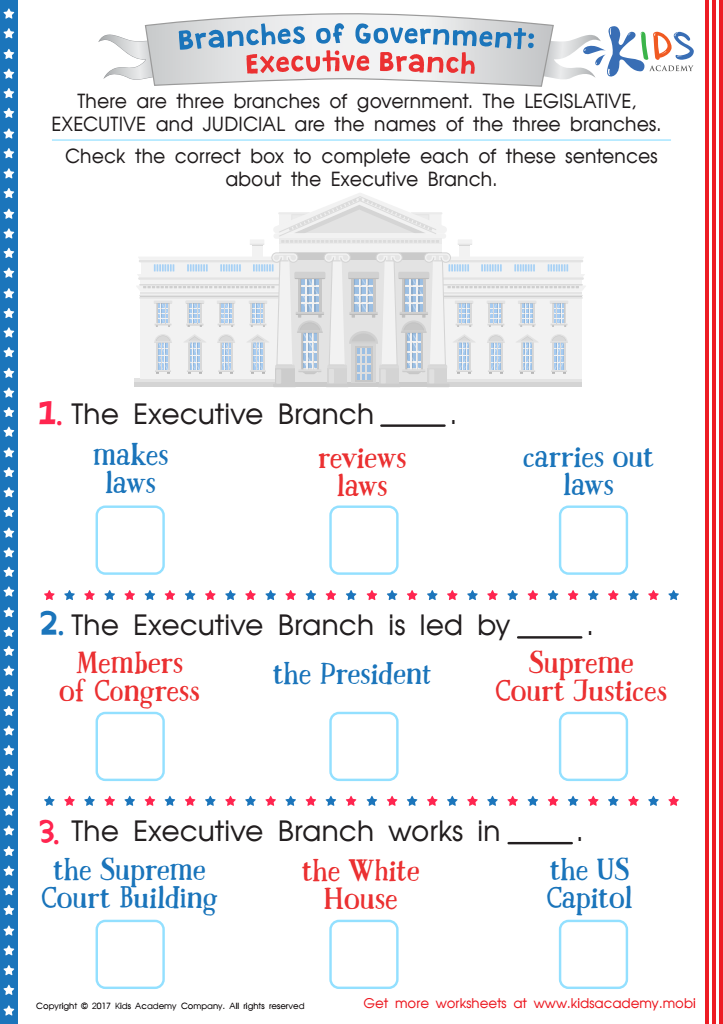

Branches of the Government: Executive Branch Printable
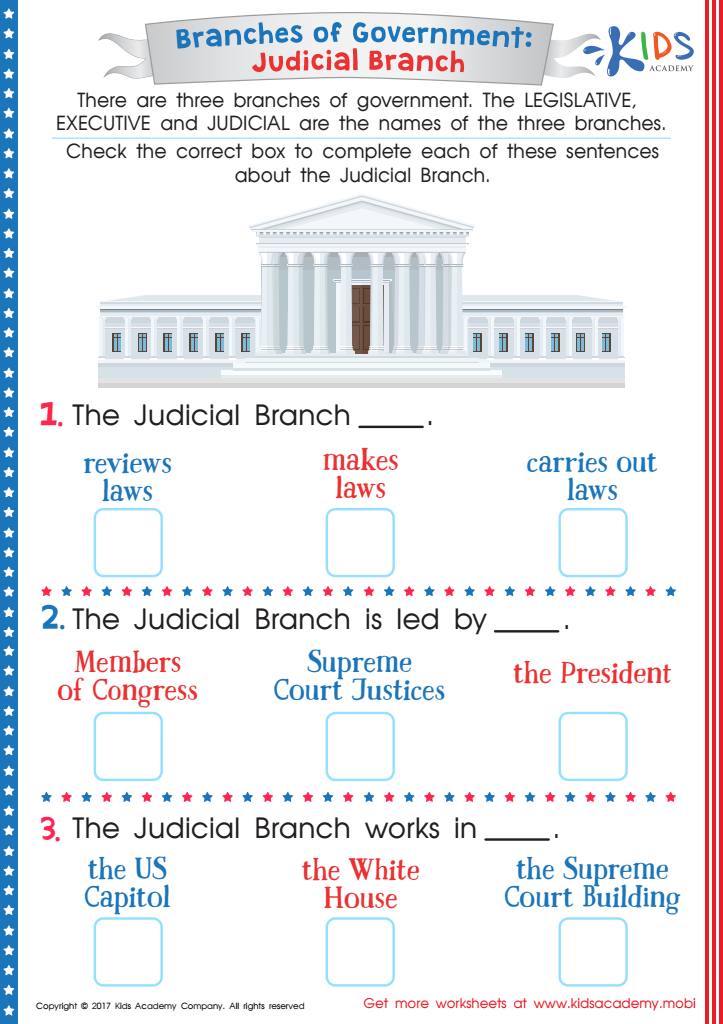

Braches of the Government: Judicial Branch Worksheet
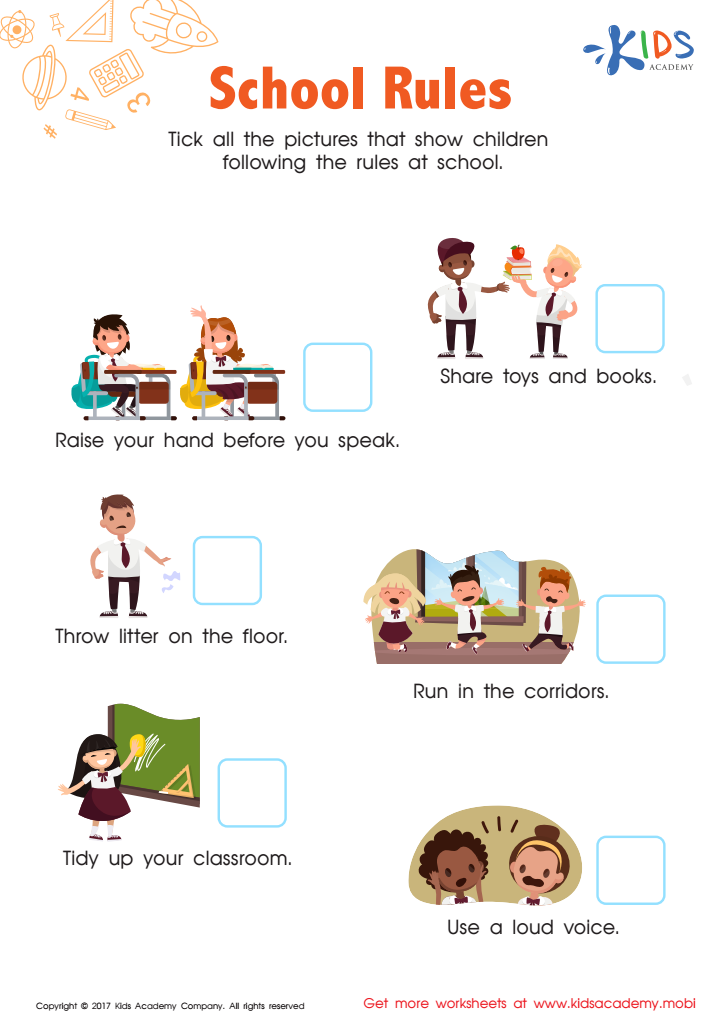

School Rules Worksheet
Parents and teachers should prioritize Normal Governance and Civics education for children aged 6-9 as it lays the foundation for responsible citizenship and community engagement. At this age, children are beginning to understand social structures, relationships, and their roles within them. Introducing concepts of governance—such as rules, fairness, and cooperation—helps them grasp the importance of laws and how decisions impact their lives and communities.
Teaching civics instills a sense of belonging and responsibility, encouraging children to recognize their rights while also understanding their duties to others. It promotes critical thinking, as children learn to discuss different viewpoints and navigate conflicts respectfully and constructively. This early exposure fosters empathy and awareness of diversity, critical for developing harmonious communities.
Additionally, in an age where media influences perceptions of governance and society, grounding kids in civics helps them discern credible information, think analytically, and actively participate in dialogues about their environment. Engaging children in these discussions nurtures informed, active citizens who will contribute positively to society as they grow. Thus, emphasizing Normal Governance and Civics not only benefits individual development but also cultivates a more engaged, understanding, and collaborative future society.
 Assign to My Students
Assign to My Students









